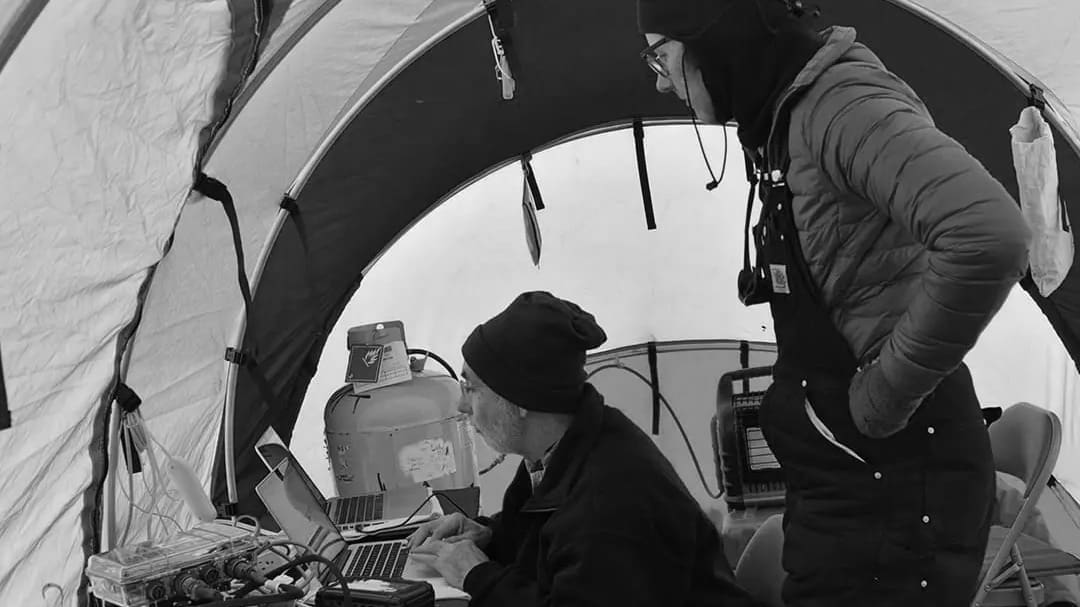Yesterday Camp – Part 8 – “Tremors from Home”
Part 8
Tremors from Home
Our seismometers measure earthquakes and icequakes that ripple through the planet and make the ice beneath our feet tremble. Sadly, we heard a report of a 6.2 earthquake off the eastern coast of New Zealand that is has stranded thousands and has transformed the city of ChristChurch into a refugee center. I am sure that our seismometers registered that one loud and clear. A quake of a different kind, with our home as the epicenter, sent tremors through the camp today.
This is not the first presidential election I have seen from afar. I arrived at an orphanage in Ghana, West Africa on the night of Obama’s first election in 2008. I stayed up all night, wiggling the coat hanger attached to an old, rickety radio to follow the election results on the BBC. The next morning, the orphanage was bustling with optimism and excitement. Since I was the new American at this orphanage, I became the new spokesperson for the country in general and the Obamas in particular. Many of the children asked me what Obama’s kids were like. I had to explain that my country is very large and it is unlikely that I will ever meet the Obamas.
At Yesterday Camp, we called in on the HF radio for election updates. The results created a looming sense of disbelief. The conversation quickly moved on the potential affects that this presidency will have on scientific work, especially here in in Antarctica. A wave of uncertainty washed over these talented scientists and grad students and I am guessing, will continue to do so for some time. The wave also washed up on me, the composer. I fear that public support for the Arts could potentially suffer as much as much funding for science. I am sure that many back home also feel these tremors. Irregardless of who won this election, about half the country was going to feel this way.

None of this slowed down our work. We quickly returned to digging large holes in the snow and taking long trips on snowmobiles across the ice shelf. It was a relief to push the questions of the future aside. It felt good to shovel snow.
Throughout the last month in Antarctica, in the height of the campaign season, I haven’t heard much talk about the election. I asked around the station and received a number of explanations for the absence of political conversation. Some said that they were just happy to be as far away from the horrible public rhetoric as possible. I must admit, that luxury has not gone unnoticed by this composer. Others explained that, for better or worse, the science community prefers to deal with facts and has a distaste for the roller coaster of truths, half-truth, half lies, and blatant lies that dominate political debate. The facts should be enough to move policy. While we wish facts would always guide politics, sadly they don’t. Some scientists feared touching off a wildfire of political animosity within this small community isolated under the same roof. The common sense of purpose here takes precedent. There has been an unspoken mutual respect for each other views. Political bickering, especially the polarized chatter of this campaign, will not help get the important work here done.
That being said, the luxury of distance and limited internet access will soon cease for all of us. Upon our return home, we will be thrust back into the swirling storm of 24-hour news coverage. I hope to bring back a little bit of the soothing quiet of the ice shelf. I fear that it will be difficult to keep it from melting in the heat of our culture of interruption and outrage. It is hard to be the moon standing against the blazing light of the all-day sun.

